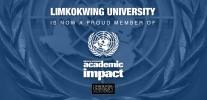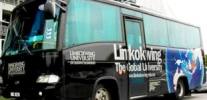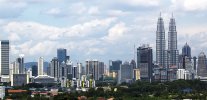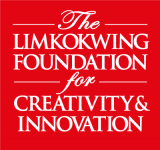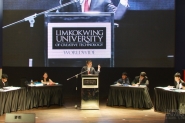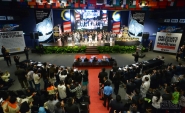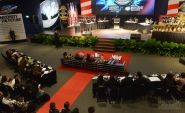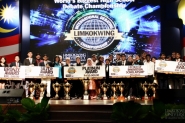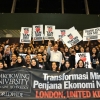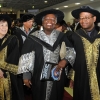The Limkokwing International Debating Championship Finals argues on eco-terrorism and the government
18 April 2014
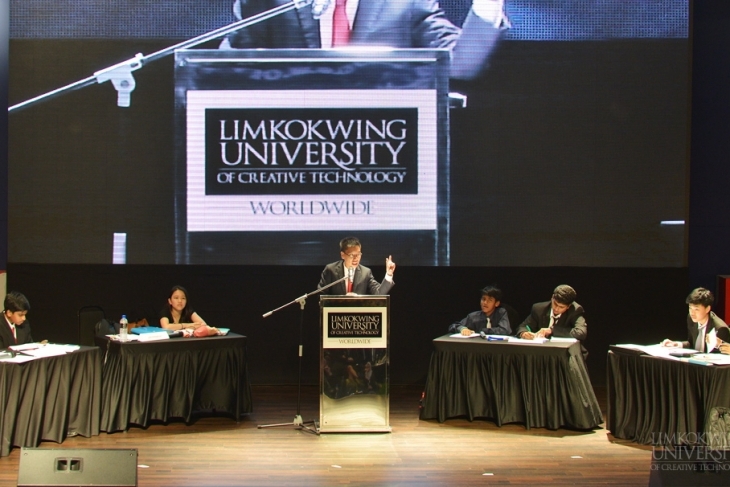 Students from SMK Sri Permata, Methodist Boys School, and SMK Damansara Jaya match wits with each other onstage at the finals
Students from SMK Sri Permata, Methodist Boys School, and SMK Damansara Jaya match wits with each other onstage at the finals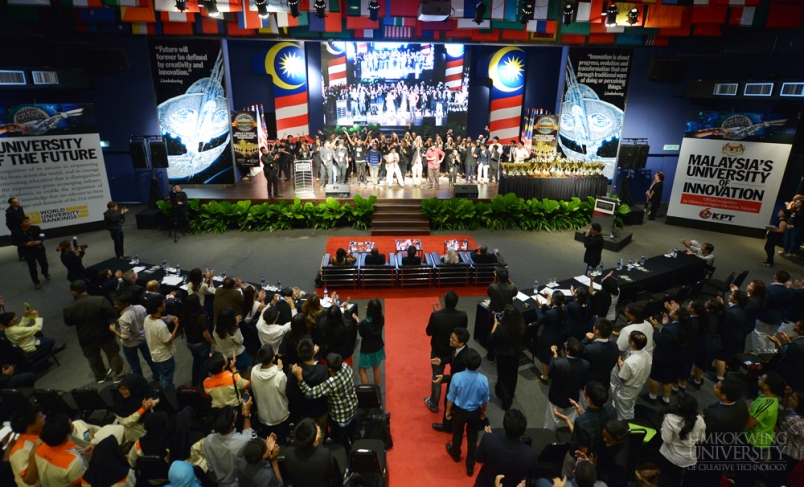 Students and invited guests watch the teams debate the Finals at the Hall of Fame.
Students and invited guests watch the teams debate the Finals at the Hall of Fame.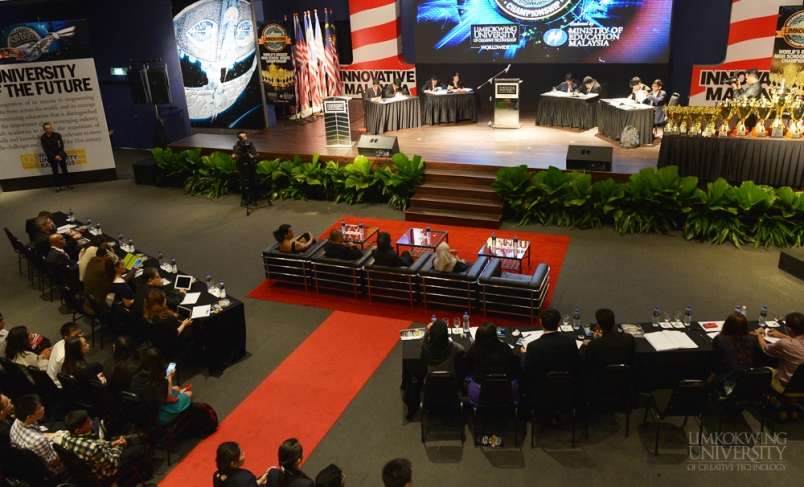 The judges listen intently to the points brought forward by the speakers.
The judges listen intently to the points brought forward by the speakers.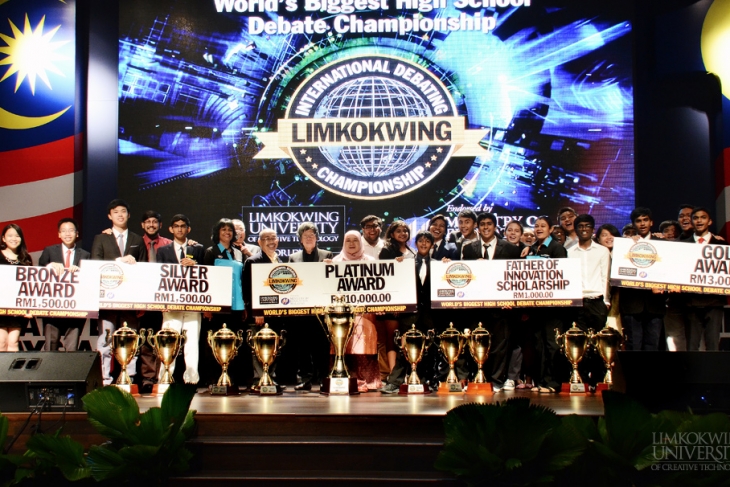 The finalists pose with their trophies and prizes after a tense showdown.
The finalists pose with their trophies and prizes after a tense showdown.
The Limkokwing International Debate Competition came to a head when the teams from SMK Sri Permata team, Methodist Boys School, and Damansara Jaya met at the Finals of the competition, set in the illustrious Hall of Fame. The LIDC is the world’s biggest high school debating competition that was held from 20th till 23rd February 2014 with a total of 69 high schools from all over Malaysia took part in this challenge.
The SMK Sri Permata teams of Kishen Sivabalan and Nimalan Gunandran, and Siddharta Adaikalaraj and Roshan Sivabalan sat on the opposition and government sides respectively, joined by SMK Damansara Jaya team, Eliza Chow & Evan Wong on the government side and Methodist Boys’ School team; Levinthiran Kuruparam and Lim Le Shaun on the oppositions to debate a topic of much controversy- the motion that the government supports eco-terrorism.
The government put forth the argument that in order to reign in the burgeoning influence of corporations and their agenda, eco-terrorism was a valid form of protest by the people as the government, despite attempting to ratify treaties and laws regarding pollution and ecological conservation, was being blocked by parties with an interest in allowing corporations to continue with their agenda.
The government also asserted that eco-terrorism was a people-fuelled pursuit and not something spawned out of state mechanisms, and as such, represented the will of the people and should be encouraged as this meant the public in general was taking a proactive approach in combating the perceived evils of their time. In short, the government summarized that eco-terrorism was a viable civilian approach to the problem corporate agendas and interests as it only affected the affluent who were responsible for corporate excesses, and operates in a grey area that government is not capable of working in due to corporate interests within the structure of the government itself.
The opposition put forth the rebuttal that the responsibility to curb corporate interests rested solely with the government and could not be shrugged off lightly just because ‘the people’ were conducting the eco-terrorism. They pointed out that eco-terrorism inevitably effects the innocent as collateral damage during more radical protests, and despite good intentions, eco-terrorists cannot and must not be regarded as above the law.
The clear message was sent that despite the best efforts of the corporations to stave off any attempts to curb their interests, the buck has to stop with the government and its policies regarding ecological conservation and guidelines that delineate the boundaries of what corporations can do.
After a long, well-argued debate that required much discussion among the judges, it was decided that opposition team, composed of SMK Sri Permata’s of Kishen Sivabalan and Nimalan Gunandran and Methodist Boys’ School’s Levinthiran Kuruparam and Lim Le Shaun had won the debate.







